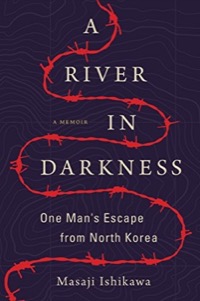
The story Masaji tells is not one for the faint of heart. Masaji was born in Japan, shortly after World War II. His father was Korean, his mother was Japanese. That simple fact stacked the odds against his family from day one. The Koreans in Japan after the war “…belonged to neither the winning nor the losing side, and they had no place to go.” In Japan, his family constantly battled poverty and discrimination. When his father was approached to move to North Korea with the promise of a better life, he was more than primed for the sale-pitch presented to him.
What followed was a decade’s long explanation of the horrors and struggles they faced in North Korea. The promises that turned out to be lies. The constant brainwashing. The realization that as Koreans from Japan, they were still considered the lowest of the low. The corruption and abuse.
I’ve seen a few people wondering how true the story is. If you search for Masaji, you’ll find virtually no information (though you’ll see in the book there is a perfectly good reason for why he may chose to write under a different name). If it’s a fake, though, it’s an incredibly well-researched one.
I can’t blame folks for wondering if it’s true, maybe even hoping it isn’t. It would be much easier if we could pretend this isn’t real. It’s difficult reading, on an emotional level, about the horrible conditions they faced on a day to day basis. Sometimes a story is about overcoming the odds to accomplish something incredible. In this case, survival itself is the accomplishment.
If you’re looking for something uplifting, you won’t find it here. The accounts of what he and his wife and kids dealt with broke my heart over and over again. And there’s no happy ending. At the end of it all, I was left furious and hurting.
I won’t blame anyone for passing on this book. It’s emotionally challenging from the first page to the last sentence. But it’s also important. When we don’t expose ourselves to the challenges faced by people in different situations from our own, we risk viewing the world through our own myopic lens. And when you read stories like this one, you can’t help but feel we could all use a little bit more perspective and empathy.